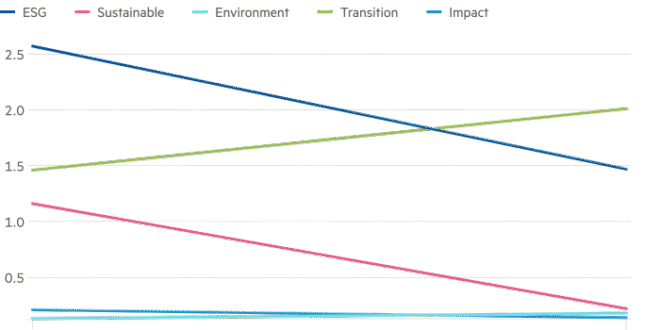This is an online version of the Europe Express newsletter. Subscribers can sign up. here Subscribe to the FT newsletter and receive it every Saturday morning, as well as on weekdays. Upgrade to Premium or browse all FT Newsletters
Good morning. Can the EU truly claim to have a unified market? Our correspondents ask if Brussels is up to the task of fixing the biggest asset in the EU.
Germany is expected to announce today that it will spend 3.5 percent of its GDP by 2029 on defense. Here I explain why other allies’ lack of ambition could derail today’s Nato summit. Laura is told by the outgoing director of the EU fraud buster that the sister agency created to assist him in fact gets in his way.
Gimme five
Mark Rutte’s ability to withstand crises earned him the nickname “Teflon Mark”, when he was Dutch Prime Minister. He’ll be in need of that magic again, today back at The Hague. There he will have to lead the 32 member alliance through their first summit with Donald Trump 2.0.
Contexte: US President Trump is a long-time Nato critic and has demanded that NATO allies raise their defence spending by 5% to “equalise’ the cost of Europe’s safety between the US
Rutte understands that a large increase in debt is difficult, or even impossible for many European countries who are heavily indebted. He spent the last five months carefully choreographing an elaborate scheme that would satisfy Trump while allowing other leaders to sign a vaguely real pledge (possibly by crossing their fingers behind their backs).
But that delicate compromise — 3.5 per cent on core defence spending and 1.5 per cent on capabilities such as cyber and infrastructure — is now looking shaky.
Spanish Prime Minister Pedro Sánchez’s refusal to agree to those numbers, and Rutte’s acquiescence, has prompted some to request similar treatment and sparked the fury of others who see it as a breach of unity.
Sánchez has said he will sign up to Nato’s shared shopping list on what needs to be purchased, “regardless of the share of GDP that it entails” — in essence claiming that Spain can do it for less than 5 per cent.
Deploying some creative ambiguity, Rutte yesterday insisted that wasn’t an opt-out: “We are in an alliance where we fight together and, if necessary, where we also suffer and die together . . . Spain has also agreed to the targets.”
All this wordplay at the last minute carries a risk that Trump will smell a rat. This will only increase if other leaders start demanding what Rutte called “Spanish flexibility”.
Robert Fico – Slovakia’s Prime Minister – did this last night. declaring that Bratislava, “similarly as Spain” would achieve the capability target but not 5 percent of spending.
It was this that made diplomats arrive in The Hague last evening nervous. Nato veterans still shudder when they recall the 2018 summit where Trump’s first-term threatened to leave the alliance.
Trump, according to a senior Nato officer who spoke with the Financial Times, is a fan of round numbers. Rutte sure hopes so.
Chart du jour: Greenwashing

EU guidelines on climate-related investments have led to funds changing their names and increasing their fossil fuel exposure. according to Map of think-tank influence
Beef
Instead of fighting against each other, EU agencies created to combat fraud and corruption are busy fighting with one another. Writers Laura Dubois.
Context: Olaf, an EU watchdog, has been investigating fraud and corruption since 1999. The European Public Prosecutor’s Office, established in 2021, has the authority to initiate criminal proceedings but not to make recommendations.
The two agencies did not always work well together. They sometimes disagreed on when to start an investigation.
Ville Itälä, Olaf’s outgoing chief, told the FT that his agency should be involved in more investigations handed over to the European prosecutor, saying that “huge” amounts of additional money could be recovered in this way.
He called the arrival of EPPO 2021 a “trip into the jungle” and claimed that Olaf had shed dozens staffers to EPPO. “We paid quite a huge amount of our resources to EPPO — 45 posts,” he said.
Itälä said that EPPO now took on about a third of Olaf’s cases, when criminal proceedings were probably warranted. He criticised the absence of joint investigation, which would have allowed EU to recover funds faster and before the court had made a ruling.
“We are able to recover the money faster than anyone else,” he added, referring to Olaf and his administrative powers. “These additional investigations are what we really need.” [of] to defend [the] The EU budget and the taxpayers’ dollars”
Olaf recommended that €871.5mn should be returned to the EU’s coffers, of which some €300mn has been clawed back so far.
EPPO’s spokesperson declined to make any comment.
What to watch today
-
Nato Leaders’ Summit begins with informal dinner The king and Queen of the Netherlands will be hosting the event.
-
The German Finance Minister Lars Klingbeil presents the draft budget for 2025.
Please read this article
-
Macron and Merz In a piece written jointly for the FT, the French president and German Chancellor argue that Europe needs to arm itself against an unstable world.
-
Summer offensive A new type of drone attack that can’t be jammed has helped Russia make great strides.
-
Bidding Wars: Brussels is investigating the controversial sale by the Italian government of Monte dei Paschi di Siena shares last year.
Are you enjoying Europe Express? Sign up here Have it delivered to your email every weekday at 7am CET, and on Saturdays 12 noon CET. Let us know what you think. We’d love to hear your thoughts. europe.express@ft.com. Follow the latest European news @FT Europe
 Costa News Spain Breaking News | English News in Spain.
Costa News Spain Breaking News | English News in Spain.







